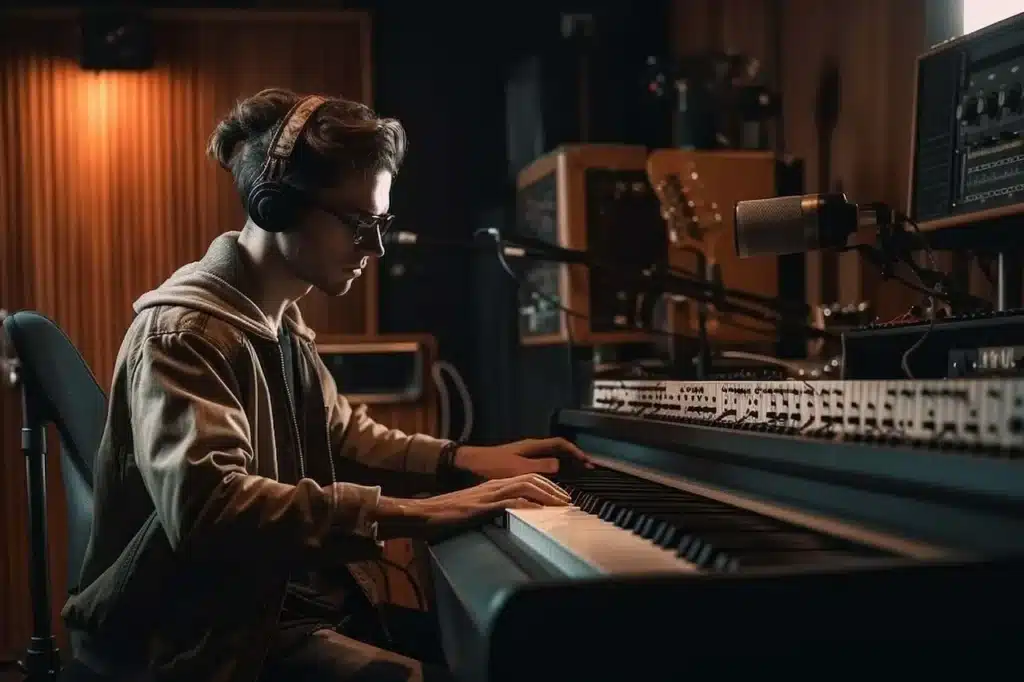Have you ever felt music pulsing in your soul, yearning to be set free, only to stumble over theory, expensive software, or the feeling that music composition is impossible unless you’re born a prodigy? You’re not alone. Thousands of aspiring creators—students, YouTubers, indie filmmakers, and music lovers—face the same roadblocks: technical jargon, instrument skills, financial barriers, and the dread of the blinking cursor on a blank DAW screen.
Pain Point Spotlight: The main frustrations for beginners in music composition are lack of music theory, instrument proficiency, overwhelming software interfaces, prohibitive costs, and creative blocks.
My Friend Vivek, a passionate music enthusiast in Mumbai whose playlist rivals any DJ but who can’t play a single song on piano. For years, Vivek felt shut out from music creation until he discovered the world of AI music composition tools for beginners—platforms designed to unlock creativity, not gatekeep it. These tools transformed Vivek’s journey and can do the same for you, no matter your skill level or location.
Why AI Is Your New Secret Weapon in Music Creation

Before AI, Vivek faced the same challenges many music lovers do when trying to compose. These roadblocks are now obsolete:
- The “Theory Wall” Demystified: The AI handles the complex musical rules. You just describe the mood you’re going for—like “a chill lofi beat with jazzy piano and rain sounds“—and the AI generates a melody and chords that actually sound good together. It’s like having a music theory tutor that’s also a genius musician.
- Overcoming “Instrument Intimidation”: You don’t need to play a single instrument. The AI generates virtual drums, basslines, synths, and even vocals. This is particularly empowering for creators in countries like India, where mobile-first content creation is booming, removing the need for expensive studio equipment.
- Tackling Creative Blocks with AI: The AI can generate an entire track, giving you a strong foundation to build on. If you’re stuck, just generate a few ideas, listen, and then build on the one that resonates. It’s an infinite source of musical inspiration.
- From “Spaceship” to “Smartphone”: Unlike traditional DAWs like Ableton or Logic Pro, AI tools are designed for simplicity. They feature intuitive interfaces with sliders, dropdowns, and text prompts, making creation as easy as using a social media app.
This wasn’t about AI “taking over” Vivek’s creativity. It was about AI being his collaborative partner, handling the technical heavy lifting so he could focus on the artistic direction and joy of creation.
Top AI Music Composition Tools for Beginners to Try in 2025
Based on usability, quality, and beginner-friendliness, here are the best AI music tools available today:
| Tool | Best For | Key Features | Pricing |
|---|---|---|---|
| Suno AI | Full song creation with vocals | Text-to-music with AI vocals, mood/tempo customization, high-quality export | Free tier + $8-$24/month plans |
| Beatoven.ai | Royalty-free background music | Mood and genre-based music, stem downloads, commercial license included | Free trial + paid plans |
| AIVA | Orchestral and cinematic tracks | 250+ styles, MIDI/audio editing, full customization, commercial licensing | Free + Pro plans (€15-49/mo) |
| Mubert | Real-time ambient loops and streams | Endless AI-generated music streams, royalty-free, API for developers | Free + subscription plans |
| SOUNDRAW | Intuitive mood-based music | Mood, genre, instruments selection; royalty-free; easy customization | Plans from $11/month |
How AI Levels the Playing Field
The beauty of these tools is their global reach. For creators in different regions, AI offers specific benefits:
- For Creators in India: The affordability of free AI tiers and the ability to compose without expensive studio equipment makes music creation accessible to a massive, mobile-first audience. AI tools can help creators easily produce background music for their Reels, Shorts, and YouTube videos in local languages and with traditional Indian musical elements.
- For Creators in Europe: With a strong focus on GDPR compliance and clear licensing, tools like Beatoven.ai are popular for providing royalty-free music that can be used safely in commercial projects without copyright worries.
- For Creators in the USA: AI tools are a game-changer for indie artists and content creators looking to monetize their work on platforms like Spotify, YouTube, and TikTok. Many platforms offer commercial licenses and distribution services that allow you to earn royalties from your AI-assisted tracks.
This video provides a valuable comparative review, helping beginners choose the best tool for their needs without having to do all the research themselves.
FAQs for Beginners: Your Top Questions Answered
What is the best free AI music generator for beginners?
The best free AI music generator for beginners is often Suno AI. It offers a generous free tier that allows you to create full songs with vocals and lyrics from simple text prompts, making it an excellent starting point without any cost. You can get something surprisingly professional sounding in seconds.
Do I need any musical background or knowledge of music theory to use AI tools?
No, you don’t. The best AI music composition tools are specifically designed for beginners with no prior musical experience or knowledge of music theory. They handle all the technical aspects of melody, harmony, and rhythm, allowing you to focus on your creative vision.
Is using AI for music composition considered “cheating” or less creative?
No, using AI for music is not cheating. It’s a creative tool that amplifies your ideas and helps you overcome technical barriers. The human element—your unique taste, direction, and vision—remains at the core of the creative process. Think of it as your brilliant co-pilot, not a replacement for your creativity.
Can I make money with AI-generated music?
Yes, you can. Many AI music platforms, such as Boomy or SOUNDRAW, offer commercial licenses and distribution services that allow you to publish your tracks on platforms like Spotify, Apple Music, and YouTube. You can then earn royalties from streams and sales, provided you comply with the tool’s specific licensing terms.
Your Symphony Awaits!
If Vivek, a self-proclaimed “non-musician,” can compose and share his own tracks with the world, so can you. These AI music composition tools for beginners are your ticket to unlocking a new dimension of creativity.
Don’t let traditional barriers hold you back from expressing your musical self. Dive in, experiment, and let AI be the bridge between your musical ideas and tangible, beautiful compositions.
What kind of music are you dreaming of composing? Share your aspirations in the comments below—let’s inspire each other! 🎵✨
Expert Note: Content and recommendations are regularly updated based on evolving AI trends. Always check platform terms and try the free versions before committing.
